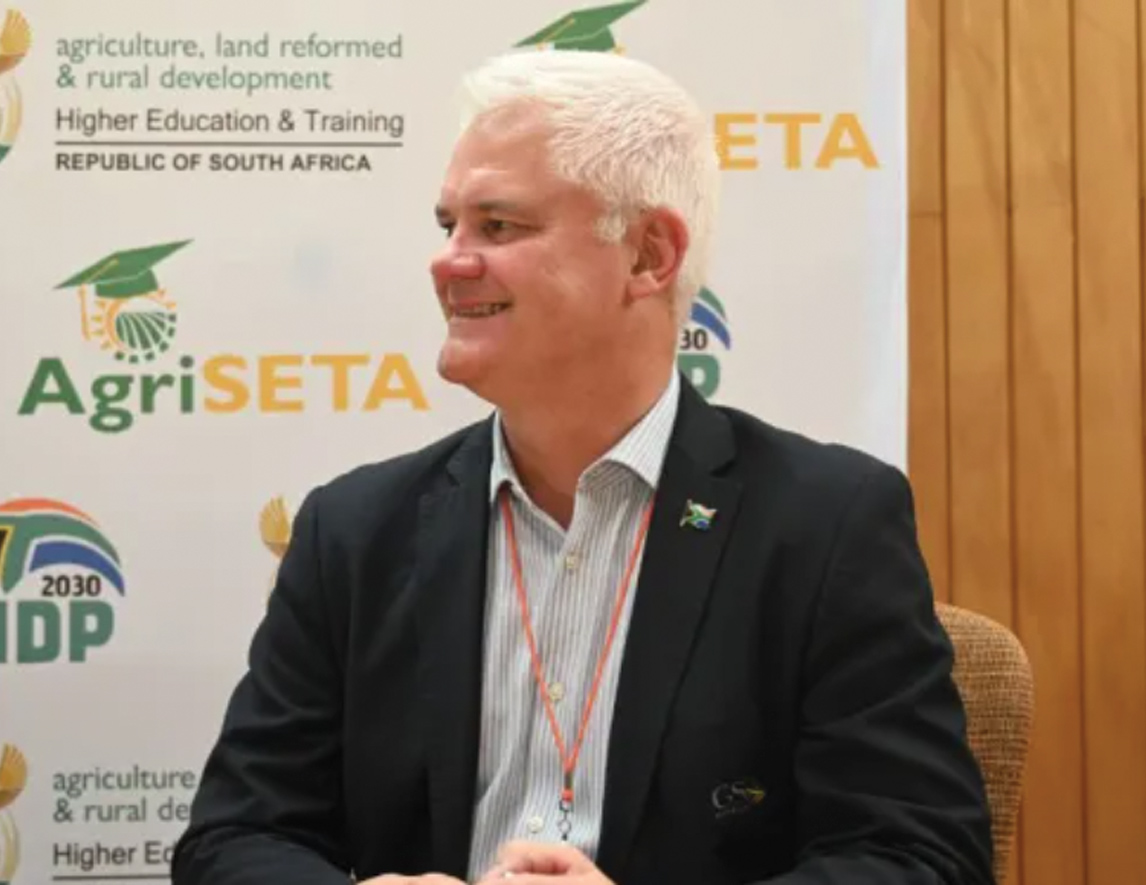March 2025
| IVOR PRICE, EDITOR-IN-CHIEF: FOOD FOR MZANSI GROUP |
 |
AGRICULTURAL EDUCATION IN SOUTH AFRICA MUST EVOLVE RAPIDLY TO KEEP PACE WITH SCIENTIFIC ADVANCEMENTS, TECHNOLOGICAL INNOVATIONS, AND THE PRESSING DEMANDS OF CLIMATE CHANGE. DR TOBIAS DOYER, CEO OF GRAIN SA, HIGHLIGHTED THESE IMPERATIVES, URGING STAKEHOLDERS TO TRANSFORM AGRICULTURAL TRAINING FOR A SUSTAINABLE FUTURE AT AGRISETA’S AGR-EDU SYMPOSIUM.
Dr Doyer noted that young people entering the field must be equipped to evaluate, adapt, and adopt cutting edge methods to sustain food security and economic growth.
SHAPING THE FUTURE OF FARMING
He pointed to significant advancements in three critical areas – genetics, biostimulants, and robotics – that are shaping the future of farming globally and in South Africa.

Dr Tobias Doyer called for an overhaul to modernise agricultural training in South Africa.
Photo: Iwan Dirksen/Food For Mzansi
EDUCATION AND SKILLS DEVELOPMENT
Dr Doyer furthermore noted the urgent need for transformation in agricultural education to align with these advancements. ‘Educational programmes must not only address current skills shortages but also anticipate the evolving needs of the sector.’
He advocated for fostering critical thinking, problem-solving and entrepreneurship among students, equipping them to navigate an everchanging landscape. ‘Agriculture’s unique role in developing future business leaders cannot be overstated.’
The symposium revealed pressing challenges within agricultural education:
Grain SA, under Dr Doyer’s leadership, remains committed to human capital development. Initiatives like the Leadership in the Connection Economy programme, exemplifying the organisation’s focus on empowering farmers with the tools and knowledge needed to thrive. ‘The Agri-Edu Symposium serves as a rallying call for all stakeholders to collaborate, innovate, and ensure our sector remains resilient,’ he stated.
By addressing infrastructure gaps, modernising curricula, and fostering partnerships, South Africa can develop a new generation of skilled, adaptive, and entrepreneurial agricultural leaders.
Publication: March 2025
Section: Pula/Imvula